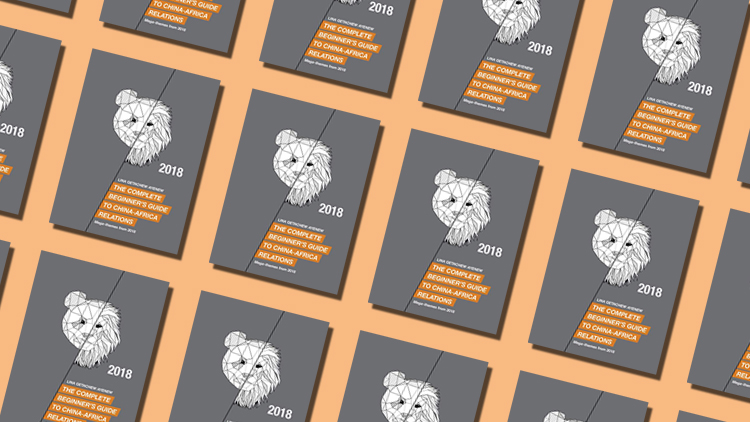Five years in the making,
The Complete Beginner's Guide to China-Africa Relations catalogues the intricate themes that have influenced the relationship between two global giants over the last half-decade. Written by Lina Getachew Ayenew, a Beijing-based academic originally from Ethiopia, the guide is the culmination of years of in-depth research and personal insight, resulting in an accessible entry point to a deeply complex topic.
Origins of the book
'Back home, my neighbourhood kind of became a faux Chinatown – not officially what we call Chinatown, but there are so many Chinese businesses that it felt like that.' Having seen the influence of China in Ethiopia, and then coming here to work, Ayenew wanted to understand more about the complex trade and bi-lateral collaborations that have boomed in recent years. 'In this day and age, where there's such a data overload, I sometimes really appreciate someone just telling me what's important,' the author tells us. So, that's what she did. 'When I started writing [the books five years ago], it was not intended to be a book; it was just a one-time report. But I was curious about the subject and decided to continue researching.'
China-Africa relations in the next five years
According to Ayenew, 'There are a lot of students [from African countries] coming to China, which is a new phenomenon over the last five years. So now, what's happening is that the kids will graduate from their programmes and go home. What are they going to do? How are they going to change the conversation?... The educational opportunities that China has provided to African students in terms of scholarships, or even universities opening their admission doors, have been a major asset to a young continent. These opportunities can be greatly transformative for the students and this one sector can help China and the continent achieve closer ties. Another sector is infrastructure – we need so much infrastructure. It personally affects a citizen.'
But, of course, not all changes to the system are going to be good. 'One of the most important things is that some sectors might have to be protected from Chinese companies. If retail workers bring cheap goods from China and start selling them as peddlers – of course, there will be tension. The responsibility is on African governments to protect sectors.'

Image: courtesy Dalu Media; artwork: Tana
Why should you read it?
The guide is primarily aimed at diplomats, academics, students, aid workers, business people and the media. But with its straightforward explanations, the book presents a nuanced overview of the most prevailing themes and events that have shaped relations between Africa and China of late. If you want a better understanding of the relationship, which is only going to get stronger and more complex in the coming years, then Ayenew's guide is a good place to start.
Many people may view China's interest and investment in Africa as predatory, but, as Ayenew explains, it's much more complicated than that. 'The more I learn about [the relationship], the more I can't answer whether it's good or bad... Asking if China is good or bad is like asking if a fire is good or bad. It depends on the context: you could burn a house down, or you could cook food. I think the fact that China became very interested in Africa – for good or for bad – made other places interested in Africa as well. I love that it has renewed interest in Africa.'
